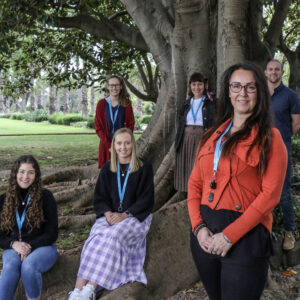Psychosocial supports
Psychosocial support means helping people with severe mental illness to participate in their community, manage daily tasks, undertake work or study, find housing, get involved in activities, and make connections with family and friends. Psychosocial supports are specific to each person and their needs.

The National Disability Insurance Scheme (NDIS) can provide support to people with psychosocial disability, but there are people with severe, episodic mental illness who may not be eligible for the NDIS.
In July 2019, the Australian Government started funding primary health networks to commission more psychosocial support services, to help people ineligible for the NDIS avoid ‘falling through the gaps’.
Our service providers
In 2019–20, North Western Melbourne Primary Health Network (NWMPHN) commissioned Neami National and cohealth (selected by tender) to provide psychosocial support services across the region.
These organisations deliver tailored services to eligible people, including direct support from a psychosocial support worker, help with daily living activities, help with return-to-work or education, family connection, housing support, health coaching, community participation, service navigation and emotional support and mentoring.
Neami National provides services in the northern areas of the region (comprising the Melbourne, Yarra, Merri-bek, Moonee Valley, Darebin, Hume and Macedon Ranges local government areas) and cohealth covers the western areas (comprising the Wyndham, Melton, Brimbank, Hobson’s Bay, Maribyrnong and Moorabool local government areas).
Other organisations are contracted to provide group-based psychosocial support programs including Youth Projects, the Australian Vietnamese Women’s Association, Merri Health and Odyssey House.
See our system of care for referral information for all our commissioned services that feature a psychosocial support component.
What we’ve learned from stakeholders
In 2018, we held a major stakeholder forum with Eastern Melbourne and South Eastern Melbourne primary health networks. The ‘Getting it right: National Psychosocial Support Measure Co-design Forum’ was attended by 80 stakeholders from the mental health sector, local hospital networks, government and community health organisations, as well as mental health consumers and carers. Read the ‘Conversation Tracker’ forum report to learn more.
From this and our regular consultations with stakeholders, we hear that psychosocial support services should offer:
- regular clinical care/case management
- practical and timely supports
- choice (for example, in the type of support and who delivers it)
- flexibility and control
- information and options
- support from peer workers.
Our stakeholders also say that services should be culturally aware, adopt trauma-informed practice and be safe. They should support people to:
- achieve stable mental health
- improve their physical health and emotional stability
- connect to community, family and friends
- secure employment
- undertake enjoyable activities
- secure stable housing
- undertake education and skill-building
- achieve financial stability
- achieve stability in parenting
- reduce and/or make safer substance use.







